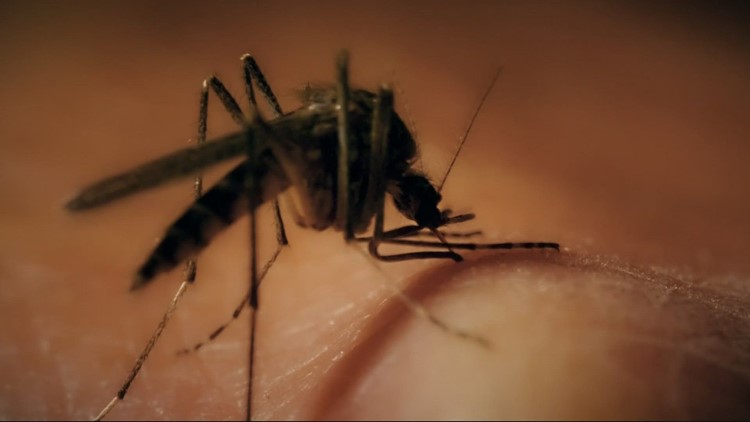FLORIDA, USA — After health officials in the Florida Keys confirmed two cases of dengue fever on Monday, First Coast News is On Your Side with what you need to know about the mosquito illness.
Prior to Monroe County Emergency Management alerting the public, the Centers for Disease Control and Prevention (CDC) issued an alert of their own in the form of a Health Alert Network Health Advisory regarding "an increased risk of dengue virus (DENV) infections" throughout the country.
Dengue is a viral disease spread to people through an Aedes aegypti mosquito bite and is caused by any of the four related viruses: dengue virus 1, 2, 3, and 4, according to the CDC.
In 2024, countries in the Americas have reported a record-breaking number of dengue cases, exceeding the highest number ever recorded in a single year, according to the Pan American Health Organization.
"From January 1 – June 24, 2024, countries in the Americas reported more than 9.7 million dengue cases, twice as many as in all of 2023 (4.6 million cases)," the CDC's website states.
The most common symptom associated with dengue is fever, along with aches and pains, nausea, vomiting and rash. Symptoms usually begin within two weeks of a person being bitten and typically last between two to seven days. Most people recover after about a week, the CDC says.
"There is currently no vaccine for dengue and the research has been challenging due to variation in the four viral types, but multiple vaccine candidates are currently in development," the Florida Department of Health's website states.
However, the CDC says there is a dengue vaccine that is "recommended for use in children 9 through 16 with laboratory confirmation of a previous dengue infection, living in areas where dengue is common."
The following is what the CDC says you should do for treatment if contracting dengue fever:
- Rest as much as possible
- Take acetaminophen (aspirin/pain reliever) to control fever and relieve pain
- Drink plenty of fluids to stay hydrated
- See a healthcare provider if you develop a fever or have symptoms of dengue. Tell him or her about your travel
RELATED: You've heard of love bugs. Now get ready for kissing bugs, the pest taking over North Florida



